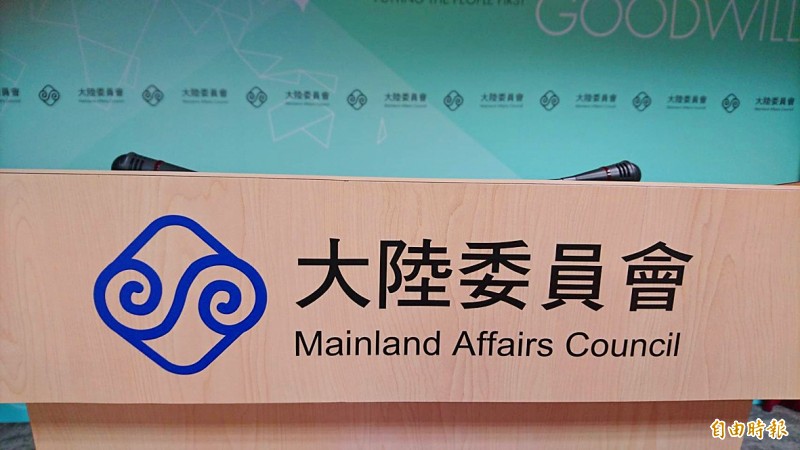《TAIPEI TIMES》 More than 27% support independence: MAC poll

The title and logo of the Mainland Affairs Council are pictured on a podium at the council’s Taipei offices in an undated photograph. Photo: Chung Li-hua, Taipei Times
/ Staff Writer, with CNA
More than 27 percent of Taiwanese support independence, according to a survey released by the Mainland Affairs Council (MAC).
According to the poll, 21.7 percent of respondents preferred maintaining the “status quo,” but they wanted Taiwan to ultimately be independent, while about 6 percent said the nation should declare independence as soon as possible.
Support for independence hit the highest level since the council in April 2010 started the poll to collect public opinions on cross-strait ties, it said.
The survey found that 1.4 percent hope Taiwan will unify with China “as soon as possible,” while 8.9 percent want to maintain the “status quo” for the time being, but want eventual unification.
Thirty-one percent agreed that maintaining the “status quo” is a good policy for now, but that eventual independence or unification would depend on political realities.
The poll found that 25.8 percent want to maintain the “status quo” indefinitely.
The poll found that 89.3 percent agree with the government’s policy, which the MAC said indicates that the development of cross-strait relations should be decided by Taiwanese.
Asked about Beijing’s attitude toward Taipei, 69.4 percent said they feel an unfriendly attitude from China, while 54.6 percent said the Chinese government holds an unfriendly attitude toward Republic of China citizens.
The two figures were also the highest since the survey began, the MAC said.
The poll showed that 89.3 percent oppose China’s military threats, while 80.1 percent oppose its efforts to poach Taiwan’s allies and block the nation’s participation in international organizations.
The survey found that 89.3 percent of the respondents oppose the “one country, two systems” framework proposed by Chinese President Xi Jinping (習近平) to govern ties across the strait, up from 75.4 percent in a similar poll in January.
According to the poll, 77.5 percent support the government’s efforts to bolster the nation’s defense capabilies to safeguard its sovereignty and democracy, while 62.1 percent support the democratic safety net proposed by Tsai in January, which is aimed at enhancing security and protecting democracy in cross-strait interactions.
Regarding the pro-democracy protests in Hong Kong, 54.8 percent of the respondents said that China’s “one country, two systems” formula has failed to be realized in the territory.
Seventy-two percent urged the Hong Kong government to start a dialogue with its people as soon as possible to meet their demands.
The survey was conducted from Oct. 17 to Monday by National Chengchi University and was commissioned by the MAC. It collected 1,073 valid questionnaires from people aged 20 and older. It has a margin of error of 2.99 percentage points.
Since President Tsai Ing-wen (蔡英文) of the Democratic Progressive Party (DPP) came to power in May 2016, ties across the Taiwan Strait have cooled, as she has declined to endorse the so-called “1992 consensus.”
The “1992 consensus” is a term former Mainland Affairs Council chairman Su Chi (蘇起) in 2006 admitted making up in 2000. It refers to a tacit understanding between the Chinese Nationalist Party (KMT) and the Chinese government that both sides of the Taiwan Strait acknowledge there is “one China,” with each side having its own interpretation of what “China” means.
The DPP maintains that such a consensus has never existed and it has always opposed the idea that Taiwan is part of China.
Taipei has lost seven diplomatic allies to Beijing since Tsai assumed office, leaving the nation with 15 allies.
新聞來源:TAIPEI TIMES














